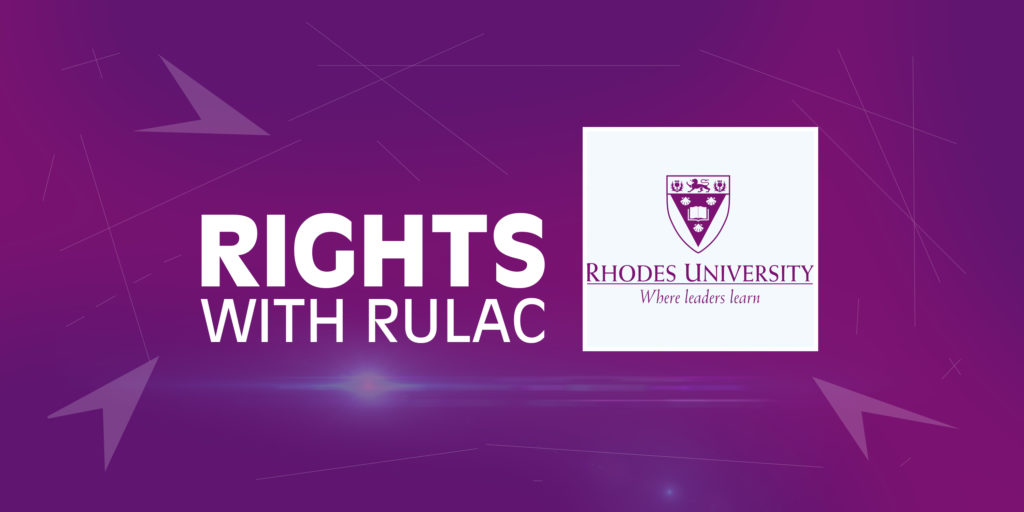By NDUMISO KHUMALO, attorney, Rhodes University Law Clinic
The National Credit Act (“NCA” or “the Act”) established several important institutions to promote and fulfil the purposes of the Act.
The National Credit Regulator
The National Credit Regulator (“the NCR”) is an independent organisation governed by a Board, with a Chief Executive Officer who may appoint inspectors and investigators. It oversees the entire consumer credit industry.
The NCR has several responsibilities regulated by section 15 of the Act.
The NCR is responsible for:
- registering credit providers, credit bureau and debt counsellors (“the registrants”);
- monitoring and investigating complaints;
- reporting to parliament on availability of credit, market practices, access to credit and level of consumer over-indebtedness;
- the enforcement of the NCA.
The Regulator has the power to:
- investigate and issue non-compliance notices by any registrants;
- prosecute non-compliance before the National Consumer Tribunal;
- refer complaints to the Tribunal;
- request the Tribunal to deregister a registrant;
- impose conditions on the registration of registrants.
The National Consumer Tribunal
The National Consumer Tribunal is an independent body separate from the NCR. It has jurisdiction throughout South Africa. It comprises a chairperson and at least ten other members appointed by the President. It is a quasi-judicial tribunal of record which conducts its proceedings in public in an informal, inquisitorial manner. The NCA sets out rules of practice, procedure and evidence for the Tribunal, as well as a list of possible orders that the Tribunal may hand down in any dispute before it. For the most part, matters are referred to it by the NCR for adjudication.
A consumer may complain directly with the Tribunal only in the following instances:
- Where the NCR has rejected the complaint;
- If the consumer could not resolve the complaint or dispute through an Ombudsman, an alternative dispute resolution process, or the NCR.
Debt counsellors
Debtor counsellors are individuals who are registered with the NCR and who assist over-indebted consumers in restructuring their debt, either by way of negotiating with the credit providers or by assisting in obtaining a court order on behalf of consumers.
There are three ways in which a consumer can access debt counselling services:
- If the consumer feels they are struggling to pay their debts, they may voluntarily submit to debt counselling.
- The credit provider can refer the consumer to the debt counsellor after the credit provider has given the consumer a written notice informing them that they are in default and suggesting that the consumer should approach the debt counsellor for assistance.
- If a court finds that the consumer could be over-indebted, it may refer the consumer to a debt counsellor.
The consumer should at least have some form of distributable income so that the debt counsellor can assist the consumer in offering to make reduced payments to their credit providers.
Consumer courts
Consumer courts are tribunals established by provincial legislation to adjudicate consumer complaints on an informal basis. They are designed to assist consumers who cannot get businesses to help them with complaints directly, and consumers pay no court fees. Most provinces have introduced their own legislation for such courts. Currently, the Eastern Cape Office of the Consumer Protector is in Qonce (formerly King William’s Town).
Credit bureaux
A credit bureau is an entity engaged for payment in receiving reports or investigating credit applications and agreements, payment history or patterns, and other consumer credit information. Credit bureaux are also in the business of compiling and maintaining data and issuing reports concerning consumers based on this data.
Section 70 of the NCA states what information may be kept by the credit bureau, who may send information to the credit bureau, and how long the bureau may retain the information. A consumer’s information may be personal or credit information. Credit bureaux assist credit providers by making available information that could prevent the over-indebtedness of consumers and the granting of reckless credit. Credit Bureaux are subject to stringent privacy rules.
Ombuds
An ombud receives and resolves complaints and disputes in various industries. For example, any complaint relating to banking may be lodged with the ombud for Banking Services. Any complaint relating to a credit bureau may be lodged with the Credit Information Ombud.
Alternative Dispute Resolution Agents
An alternative dispute resolution (ADR) agent is tasked with resolving disputes using conciliation, mediation or arbitration. Suppose the consumer refers a dispute to an ADR agent, and the ADR agent finds that one of the parties will not co-operate or that the dispute cannot be resolved. In that case, the ADR agent must issue a certificate stating that the dispute resolution process has failed. The matter may then be referred to the National Consumer Tribunal for resolution.


